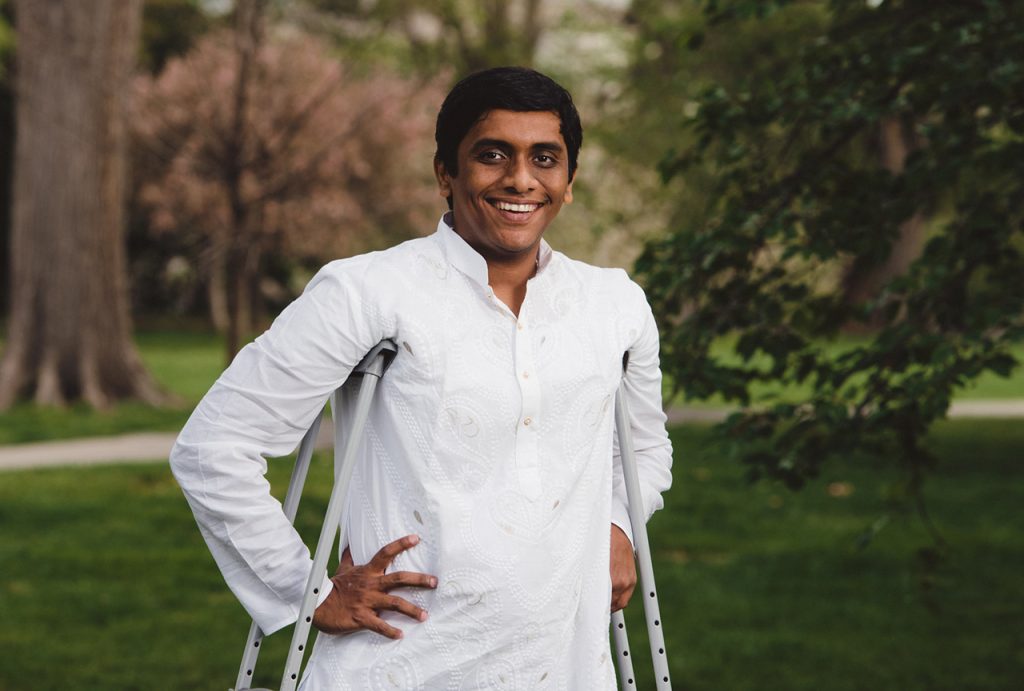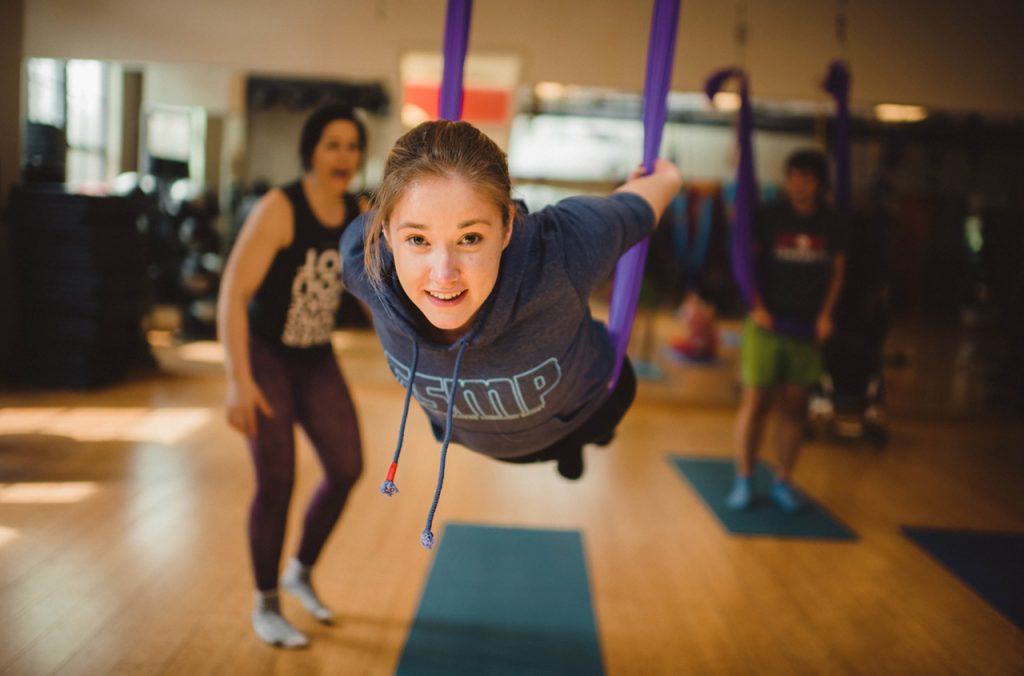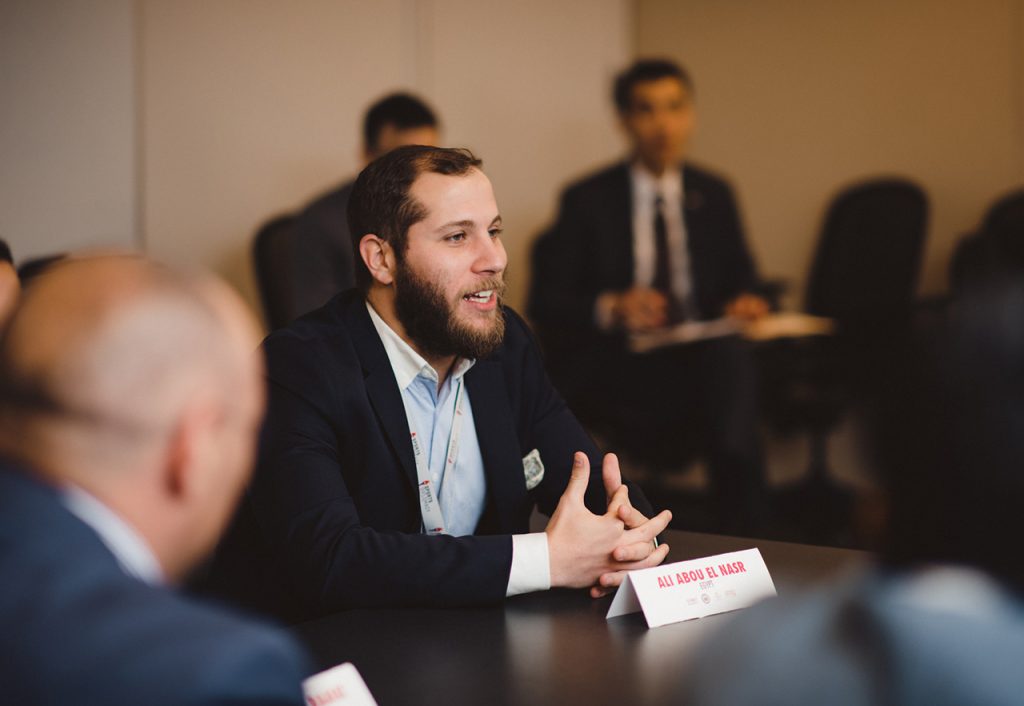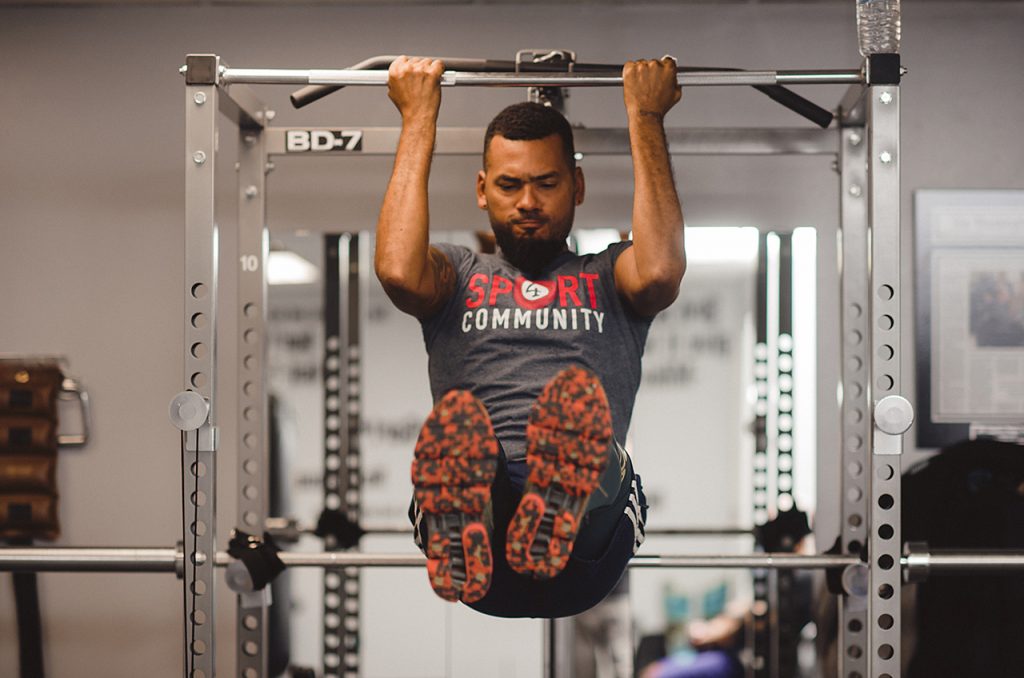Vibhas Sen is a digital marketing manager for a multinational insurance company in Mumbai, India. He loves the job but loves even more his three-times-a-week, after-work routine: fencing in his wheelchair.
Sen is among 15 disabled athletes and coaches who recently spent five weeks learning from mentors at top U.S. adaptive sports centers. They were the latest “class” in the State Department’s Global Sports Mentoring Program.
Disabled by polio as a 3-year-old, Sen took up swimming as a youth, but did not get much encouragement from his coach. Later, as an adult, he was pushed to excel by a coach who is a paraplegic. Sen did well in local and state championships, but realized he was too old to compete internationally as a swimmer.
Wheelchair fencing is a different story.

Wheelchair fencer Vibhas Sen of Mumbai, India, seeks more opportunities for students with disabilities to take up sports. (State Dept./University of Tennessee/Jaron Johns)
At age 31, Sen has a world ranking and is India’s two-time national champion. His goal is to make the Paralympics. “I’ve seen peers who are 52 and still fencing. I’ve got a lot of years ahead of me to excel and grow.”
Sen, already a role model and motivational speaker, is making the most of his time in the mentoring program, honing his plan to convince schools in five cities to adapt their curricula so students with disabilities can participate in physical education classes.
Some 113 athletes, coaches and other up-and-coming leaders from 60 countries have been mentored in the program since 2012. Sen’s group hailed from Argentina, Armenia, Egypt, Estonia, Fiji, Georgia, India, Kosovo, Mongolia, Russia, Saudi Arabia, Suriname, South Africa, Uzbekistan and Venezuela.
Keit Jaanimägi, 25, of Tallinn, Estonia, born with spina bifida, has swum competitively since girlhood and works for the Estonian Paralympic Committee.

Keit Jaanimägi, an Estonian swimmer born with spina bifida, performs aerial yoga. (State Dept./University of Tennessee/Jaron Johns)
Opportunities for disabled athletes are “still developing in my country,” says Jaanimägi, who did her mentorship at the Lakeshore Foundation in Birmingham, Alabama. “I’m fortunate. My mom influenced me to do sports. She saw what being physically active can do. It’s given me the positive, resilient attitude I have today.”

Ali Abu El Nasr, a sports management executive in Cairo, says, “All people with disabilities should know they can and should play, if they want.” (State Dept./University of Tennessee/Jaron Johns)
Ali Abu El Nasr, 26, is coach and co-founder of Blind Football Egypt. Blind football (soccer) is played with a ball that has bells inside that jingle. El Nasr, who runs a sports management company and has ties to top soccer clubs, aims to arrange exhibition games with blindfolded professionals playing alongside the teenagers on El Nasr’s squads.
Zabdai Zamuel of Suriname overcame a severe childhood leg injury to become Suriname’s youth champion triathlete. He’s coached some of the country’s fastest swimmers.

Coach Zabdai Zamuel has a blueprint for training disabled triathletes to compete internationally for Suriname. (State Dept./University of Tennessee/Jaron Johns)
“Now I want to work with people with visual impairments,” says Zamuel. “Using Goalball [a Paralympic sport for blind athletes] as the hook, we’re going to create a larger athletic pool, start people swimming and running … buy bikes and then we’re going to have triathletes,” he says.
Zamuel, who was mentored at the U.S. Olympic Training Center and the U.S. Association of Blind Athletes in Colorado Springs, Colorado, adds, “I thought I was dreaming big until I found out what dreaming big is.”







COMMENTS0
LEAVE A COMMENT
TOP